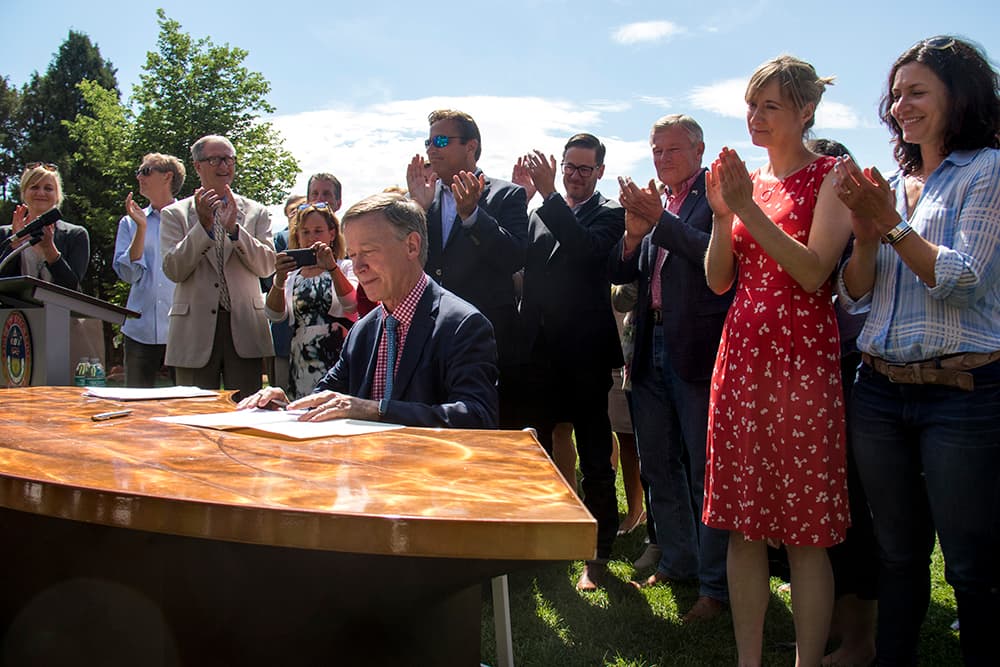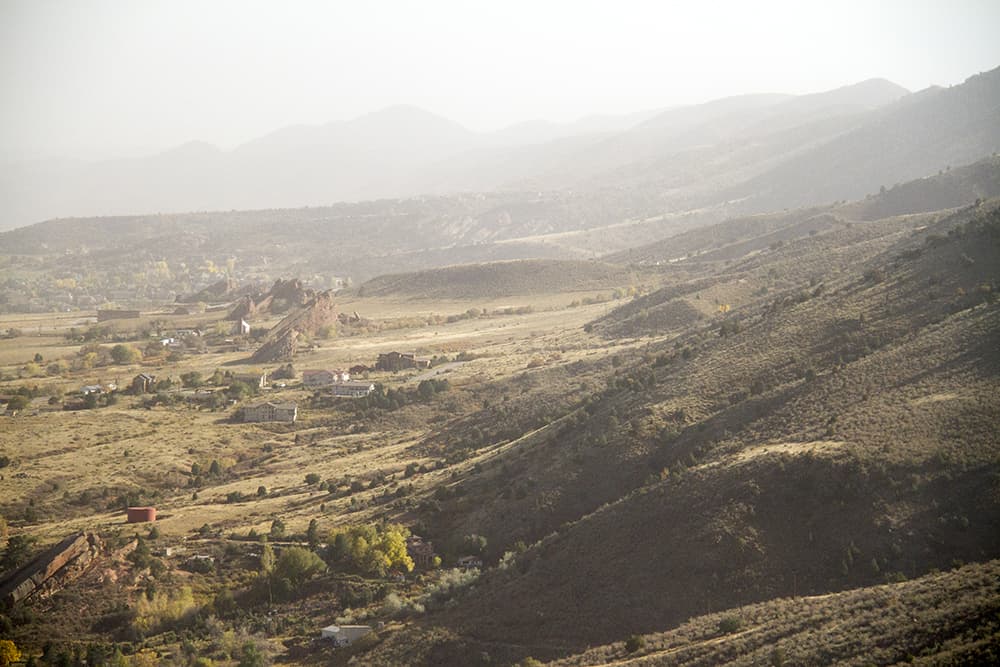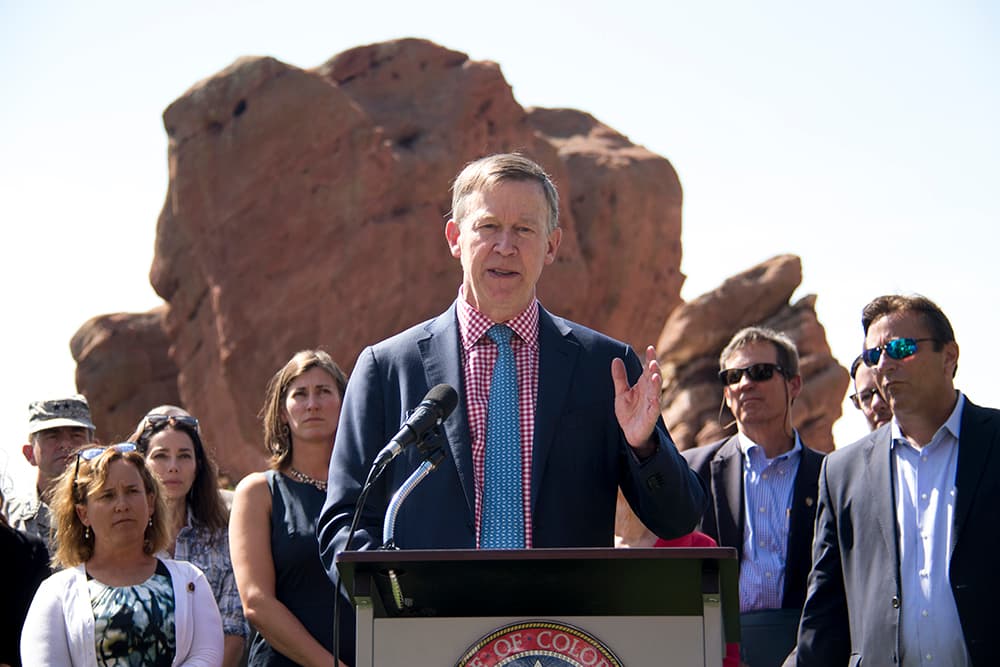
Gov. John Hickenlooper announced Tuesday that Colorado will join the U.S. Climate Alliance — a coalition of states pledging to uphold the climate goals of the Paris Agreement after President Donald Trump withdrew the country from the agreement — and that by executive order, he will create a specific goal for carbon reduction.
Hickenlooper signed the order outside the Red Rocks Trading Post with a panoramic view behind him.
"The order sets concrete, measurable goals for the state," he said.
Specifically, Colorado will try to cut greenhouse gases by 26 percent from 2005 levels by 2025. It also will aim to cut carbon from the electricity sector by 25 percent compared to 2012 by 2025 and 35 percent by 2030.
However, the executive order does not actually bind the state to that goal, nor does it give the state government any new regulatory powers.
"This is not government imposing a regime," he said. Instead, Hickenlooper stressed "collaboration," "market forces" and "innovation" as the main ways to meet the new goals
Following reporters' questions, he acknowledged that he doesn't yet have strong bipartisan support for the idea. "I expect we'll have strong Republican support. We're not there yet," he said. And, in fact, Republicans in the Colorado Senate sharply rebuked the idea later in the day.
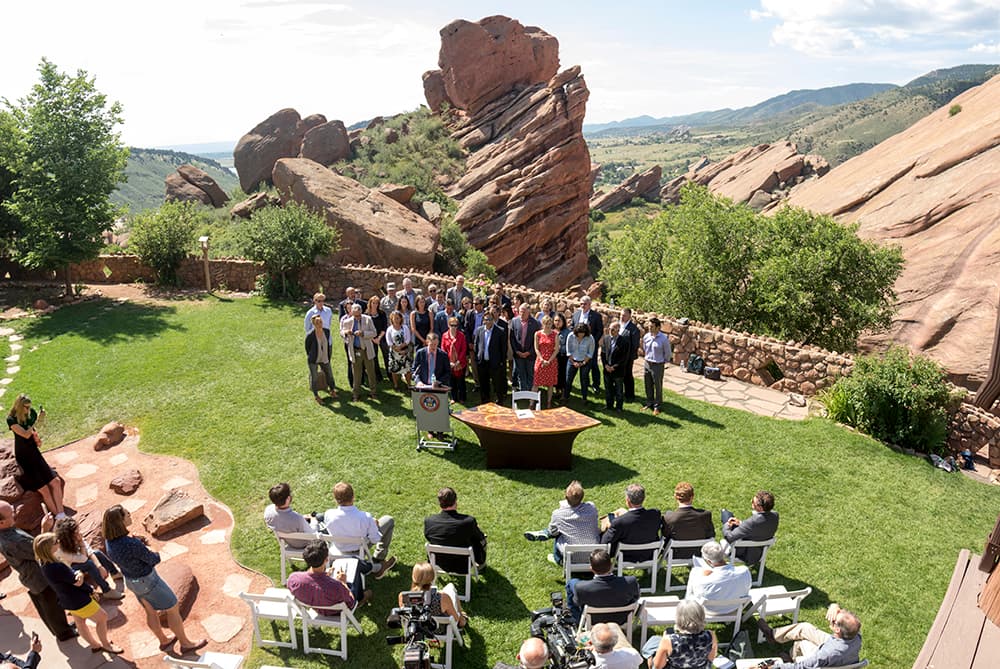
Previously, the state's long-term plan called for reductions to carbon emissions, which contribute to climate change, but the state government did not prominently advertise any detailed benchmarks for doing that.
"We can no longer rely on what happens or doesn't happen in Washington DC. ... We need to have state leadership," Aurora Mayor Steve Hogan said in introducing Hickenlooper.
Hickenlooper also said that a new electric vehicle plan to be created next year could link into nationwide plans for better electric infrastructure network.
"You'll be able to drive an electric car from Colorado to the Pacific and from Denver to Moffat County without fear," the governor said.
Statehouse Republicans aren't happy.
Republicans in the state legislature objected to the new order and said that a court challenge is possible.
“This is not Washington, D.C, and here in Colorado we do not govern by executive order," said Senate President Kevin Grantham in a news release.
“The governor’s failure to proceed in an open, collaborative, bipartisan way means this policy never will have the stamp of public legitimacy it needs, and that it most likely will be challenged in court.”
Colorado's last governor, Democrat Bill Ritter, also used an executive order to set climate goals. Hickenlooper's spokeswoman, Jacque Montgomery, said that the governor has the power to set goals.
The Senate Republicans press release claimed that the move is "seen by some as a response to weeks of political pressure from California billionaire and Democrat kingmaker Tom Steyer."
John Cooke, a state senator and the majority whip, argued in the press release that the new goals would implicitly require "losing additional power plants ahead of schedule and creating substantial unemployment is rural communities."
For his part, Hickenlooper said today that market forces are naturally shifting away from coal and toward renewables and natural gas.
He promised that Colorado is "going to do all this, also, without leaving anyone behind," and he said that he would push for economic support for communities affected by the decline of coal.
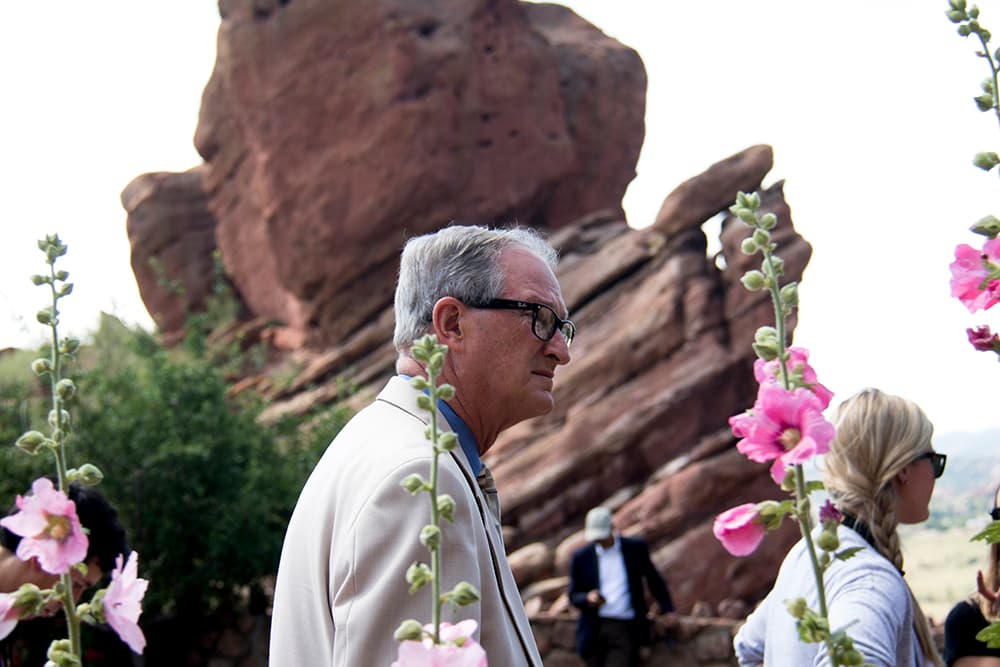
This isn't Colorado's first climate-change goal.
Former governor Bill Ritter in 2007 and 2008 called for reductions of 20 percent by 2020 and 80 percent by 2050, but there had been little recent mention of that goal in state politics, according to two experts.
"Gov. Ritter set forth this greenhouse gas reduction plan, but there was nothing binding about it, and it’s not typically referred to as something we do at the state level," said Erin Overturf, chief energy counsel for Western Resource Advocates, in an interview last month.
Hickenlooper last year floated the idea of a 35 percent cut to greenhouse pollution from power plants by 2030, but the idea quietly disappeared after oil-and-gas backlash.
Paul Chinowsky, a CU Boulder professor and co-founder of Resilient Analytics, was somewhat critical of the state's efforts in a recent interview with Denverite.
"Colorado at a state level talks a lot about it, but Colorado’s being driven a lot more at the local level," he said late last month. "We write Colorado action plans and climate plans, but we’re not seeing the action."
Colorado now is the 13th state to join the U.S. Climate Alliance, which was launched last month by the governors of New York, Washington and California. Puerto Rico also is a member.
As an executive order, the new goals could easily be rescinded by the next governor after Hickenlooper's term ends next year. Asked whether that worried him, he said that the strength of the plan would help it survive.
For a deeper look at what Colorado has and hasn't done on climate change, check out our earlier coverage.
